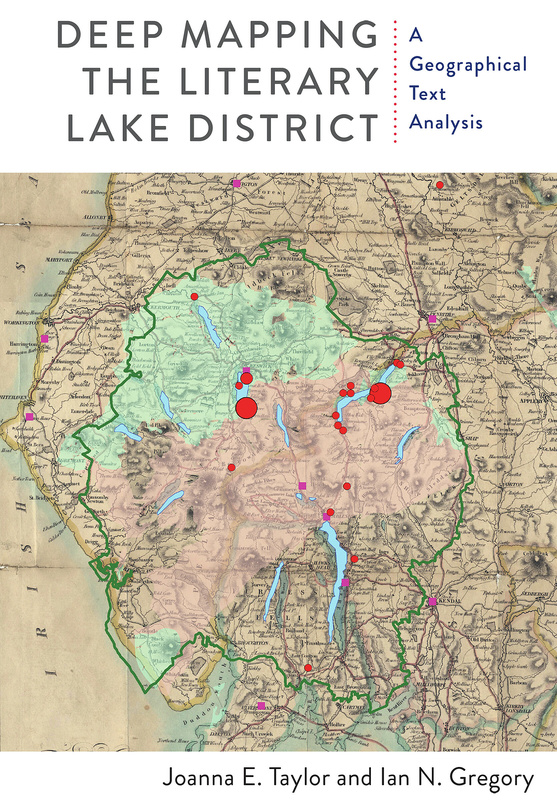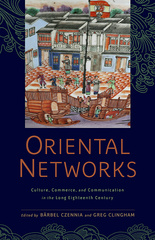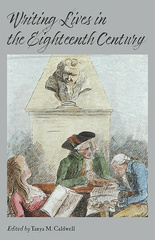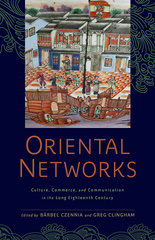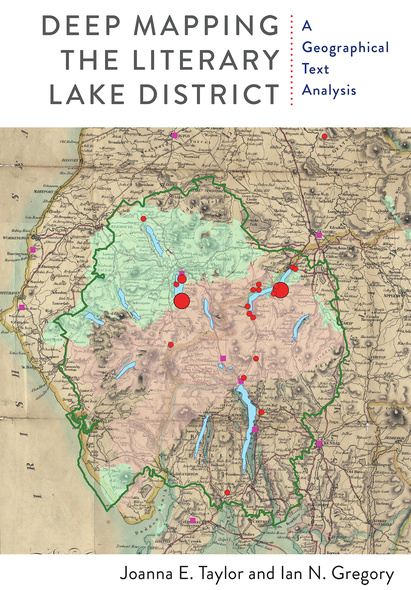
290 pages, 6 1/8 x 9 1/4
45 b&w images, 62 color images, 7 tables
Paperback
Release Date:17 Jun 2022
ISBN:9781684483754
Hardcover
Release Date:17 Jun 2022
ISBN:9781684483761
Deep Mapping the Literary Lake District
A Geographical Text Analysis
By Joanna E. Taylor and Ian N. Gregory
Bucknell University Press
England’s famed Lake District—best known as the place of inspiration for the Wordsworths, Samuel Taylor Coleridge, and other Romantic-era writers—is the locus of this pioneering study, which implements and critiques a new approach to literary analysis in the digital age. Deploying innovative methods from literary studies, corpus linguistics, historical geography, and geographical information science, Deep Mapping the Literary Lake District combines close readings of a body of writing about the region from 1622-1900 with distant approaches to textual analysis. This path-breaking volume exemplifies interdisciplinarity, demonstrating how digital humanities methodologies and geospatial tools can enhance our appreciation of a region whose topography has been long recognized as fundamental to the shape of the poetry and prose produced within it.
It is rare that one book can influence several disciplines. Deep Mapping the Literary Lake District is such a title. Taylor and Gregory offer a compelling case for the spatial humanities, and in the process, make valuable contributions to literary studies, geography, history, and cultural studies. A truly innovative work.
Deep Mapping the Literary Lake District will quickly become a new standard in the field of literary geography. Its spatial synthesis of aesthetics, Romanticism, sociology, history, literature, and cartography will excite scholars from across the digital-analog divide. I highly recommend the book to every scholar working in these fields, as well as any reader interested in the Lake District and its rich, layered literature and culture.
Taylor and Gregory brilliantly demonstrate how digital techniques developed for work at a wide scale can be employed for the full depth of deep mapping. The result is one of the most exciting demonstrations of the value of computational technologies in literary analysis that I’ve read in a long time.
Joanna Taylor and Ian Gregory . . . forge a novel methodology in their compelling and engaging study, Deep Mapping the Literary Lake District: A Geographical Text Analysis, one that employs both close and distant reading, textual and digital analysis, in order to provide different, albeit complimentary, perspectives on Lake District writing from the seventeenth through the nineteenth centuries.
In this ambitious book, Joanna Taylor and Ian Gregory marry a conventional close reading of literary texts with a ‘distant’ reading of a large corpus of writing using digital mapping technologies . . . [T]he ‘deep maps’ presented in this book provide much food for thought [and] the insights [Deep Mapping the Literary Lake District] offers into the emerging field of Geographical Text Analysis point to the technique’s potential for historical research.
JOANNA E. TAYLOR is a presidential fellow in digital humanities at the University of Manchester in the UK. Her research explores the uses of digital technologies at the intersection between literary geographies, cultural heritage, and environmental studies. Digital methodologies and technologies extend the reach of this work. She has published widely on these topics in leading journals across literary studies, digital humanities, and geographical information science.
IAN N. GREGORYis a professor in digital humanities at Lancaster University in the UK. He is particularly interested in using Geographical Information Systems (GIS) with texts as well as the more traditional quantitative sources. He has used these approaches to study a range of topics from historical demography to Lake District literature. This research has been the subject of a number of major projects including the European Research Council funded Spatial Humanities: Texts, GIS, Places and the Leverhulme Trust funded Geospatial Innovation in the Digital Humanities.
IAN N. GREGORYis a professor in digital humanities at Lancaster University in the UK. He is particularly interested in using Geographical Information Systems (GIS) with texts as well as the more traditional quantitative sources. He has used these approaches to study a range of topics from historical demography to Lake District literature. This research has been the subject of a number of major projects including the European Research Council funded Spatial Humanities: Texts, GIS, Places and the Leverhulme Trust funded Geospatial Innovation in the Digital Humanities.
Figures
Tables
Note on the Data
1 Deep Mapping and the Corpus of Lake District Writing
The Distant Reader and the Close: Toward Multiscalar Analysis
The Corpus of Lake District Writing
Corpus Linguistics and Geographic Information Science
Geographical Text Analysis
Deep Mapping as Literary Practice
2 Picturesque Technologies and the Digital Humanities
Specifying in General: Deep Mapping and the Gilpinian Picturesque
The Picturesque in the CLDW
Protest against the Wrong: The Problem with Picturesque Data
Virtual Playgrounds in Text and on Screen
3 Tourists, Travelers, Inhabitants: Variant Digital Literary Geographies
The “Discovery” of the Lake District
Keep Moving: Tourism in the Lakes
Proceeding at Leisure: Traveling in the Lake District
Away from the Show Place: The Inhabitants’ Lakeland
4 Walking in the Literary Lakes
Types of Lake District Walking
Walking along a Good Road: Taking a Lakeland Excursion
“Linger There a Breathing While”: Being a Pedestrian in the Lakes
5 Seeing Sound: Mapping the Lake District’s Soundscape
The Power of Sound, Noise, and Silence
Wordsworthian Listening
How the Water Comes Down: Listening to Waterfalls
The “Most Expensive Luxuries”: Cannon-Fire and English Echoes
6 Digital Cartographies and Personal Geographies: (Re-)Mapping Scafell
Mapping Scafell
Climbing Scafell
The View from the Top
Conclusion: The Future of Deep Mapping
Appendix: The Corpus of Lake District Writing
Acknowledgments
Notes
Bibliography
Index
Tables
Note on the Data
1 Deep Mapping and the Corpus of Lake District Writing
The Distant Reader and the Close: Toward Multiscalar Analysis
The Corpus of Lake District Writing
Corpus Linguistics and Geographic Information Science
Geographical Text Analysis
Deep Mapping as Literary Practice
2 Picturesque Technologies and the Digital Humanities
Specifying in General: Deep Mapping and the Gilpinian Picturesque
The Picturesque in the CLDW
Protest against the Wrong: The Problem with Picturesque Data
Virtual Playgrounds in Text and on Screen
3 Tourists, Travelers, Inhabitants: Variant Digital Literary Geographies
The “Discovery” of the Lake District
Keep Moving: Tourism in the Lakes
Proceeding at Leisure: Traveling in the Lake District
Away from the Show Place: The Inhabitants’ Lakeland
4 Walking in the Literary Lakes
Types of Lake District Walking
Walking along a Good Road: Taking a Lakeland Excursion
“Linger There a Breathing While”: Being a Pedestrian in the Lakes
5 Seeing Sound: Mapping the Lake District’s Soundscape
The Power of Sound, Noise, and Silence
Wordsworthian Listening
How the Water Comes Down: Listening to Waterfalls
The “Most Expensive Luxuries”: Cannon-Fire and English Echoes
6 Digital Cartographies and Personal Geographies: (Re-)Mapping Scafell
Mapping Scafell
Climbing Scafell
The View from the Top
Conclusion: The Future of Deep Mapping
Appendix: The Corpus of Lake District Writing
Acknowledgments
Notes
Bibliography
Index

